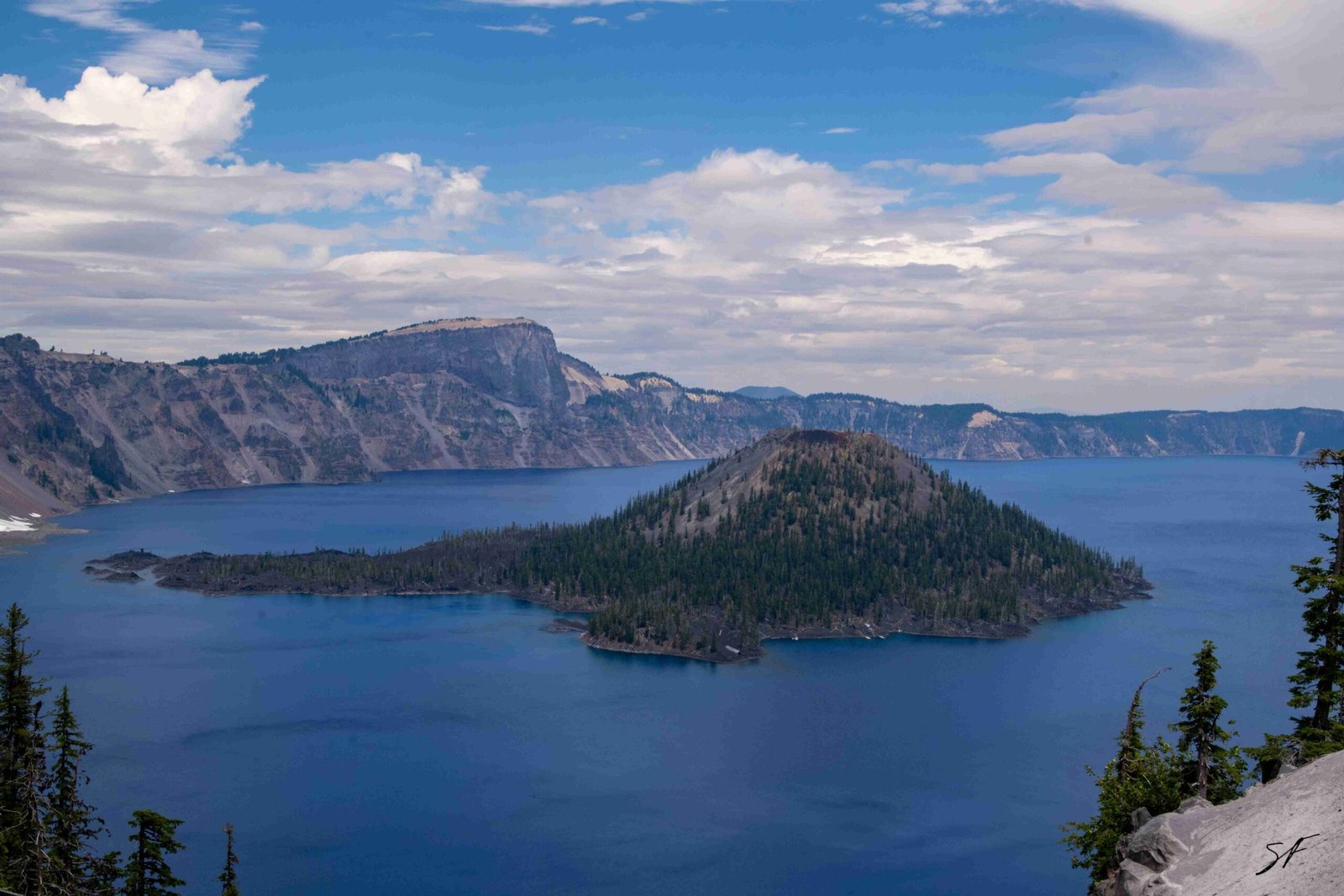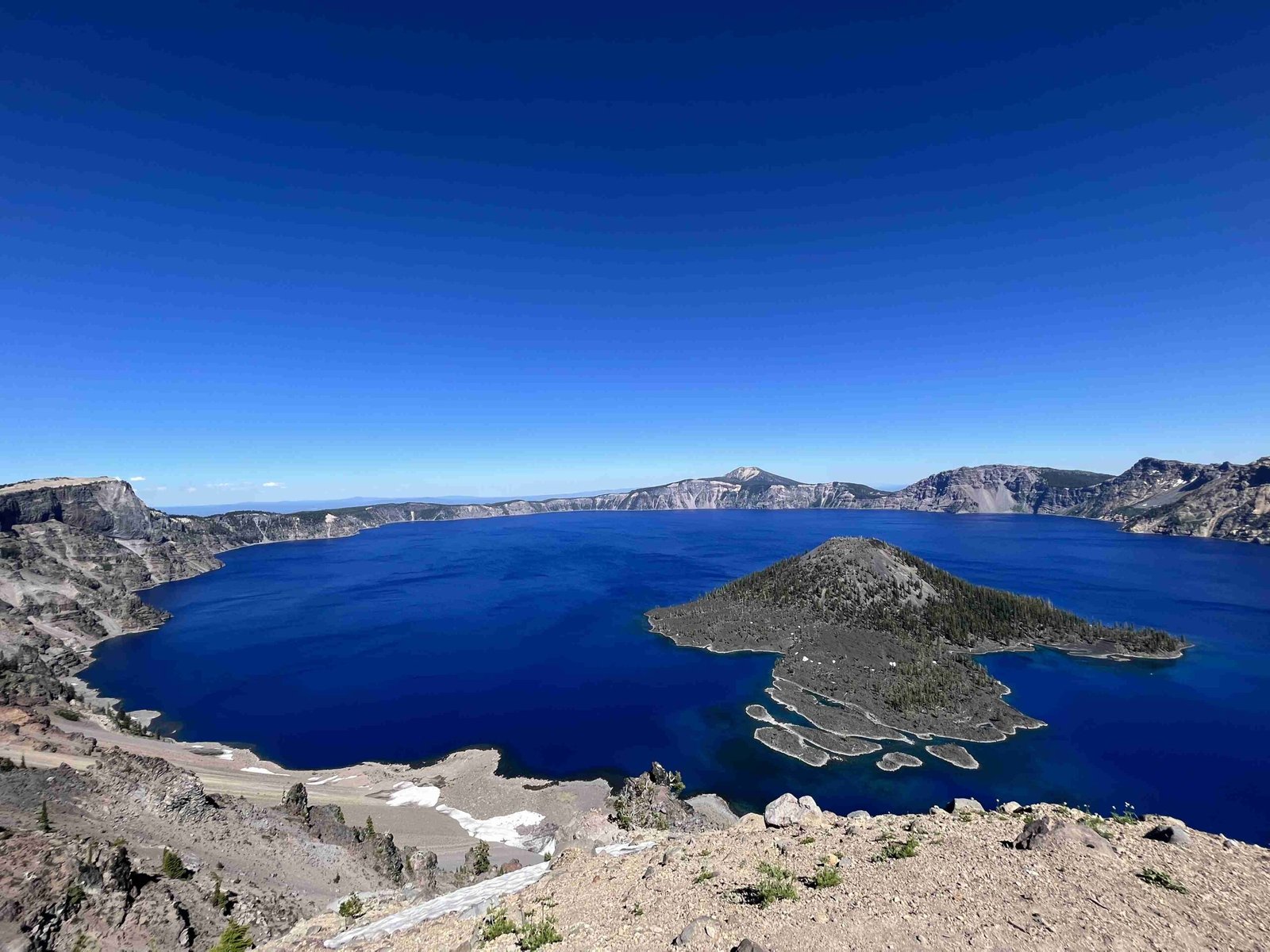The Crater Lake sunrise hike on Garfield Peak Trail offers a breathtaking experience for adventurers and photographers alike. This challenging 3.4-mile round trip ascends 1,000 feet to provide stunning views of Crater Lake and the surrounding Cascade Mountains. The trail, which starts near Crater Lake Lodge, is well-maintained but can be treacherous in winter months due to snow and ice. Hikers should be prepared for changing weather conditions and start early to catch the magical sunrise over America’s deepest lake.
What Are the Current Trail Conditions for the Crater Lake Sunrise Hike?

As of late November, the Garfield Peak Trail is transitioning into winter conditions. Here’s what you need to know:
- Snow and ice cover parts of the trail, especially at higher elevations
- The last quarter of the trail is particularly challenging due to snow accumulation
- Obstructions from melting snow and ice may be present
- Some sections might be closed or require careful navigation
- Winter trail markings may be limited, making navigation more difficult
It’s crucial to check the latest trail conditions before embarking on your hike, as they can change rapidly with weather fluctuations.
When Is the Best Time for a Crater Lake Sunrise Hike?

The optimal time for a Crater Lake sunrise hike depends on your preferences and the season:
Best Seasons
- Early summer to late fall: More favorable weather conditions
- Winter: Challenging but potentially rewarding for experienced hikers
Recommended Start Times by Month
| Month | Sunrise Time | Recommended Start Time |
|---|---|---|
| June | 5:15 AM | 4:00 AM |
| July | 5:30 AM | 4:15 AM |
| August | 6:00 AM | 4:45 AM |
| September | 6:30 AM | 5:15 AM |
| October | 7:00 AM | 5:45 AM |
| November | 7:30 AM | 6:15 AM |
Remember to adjust these times based on your hiking speed and photography setup needs.
What Safety Precautions Should I Take for the Crater Lake Sunrise Hike?
Safety should be your top priority when planning a Crater Lake sunrise hike. Here are essential precautions:
- Gear Recommendations:
- Sturdy hiking boots with good traction
- Hiking poles for stability
- Microspikes or crampons for icy conditions
- Ice axe for winter hikes (if experienced)
- Headlamp or flashlight for pre-dawn hiking
- Warm, layered clothing
-
Emergency blanket
-
Wildlife Awareness:
- Keep a safe distance from animals like marmots
- Do not feed wildlife
-
Store food properly to avoid attracting animals
-
Communication and Emergency Preparedness:
- Carry a fully charged cell phone
- Bring a portable charger or extra batteries
- Know emergency contact numbers for Crater Lake National Park
-
Inform someone of your hiking plans
-
Weather Preparedness:
- Check weather forecasts before your hike
- Be prepared for sudden weather changes
- Bring extra layers and rain gear
What Amenities Are Available Near the Crater Lake Sunrise Hike Trailhead?
Understanding the available amenities can help you plan your hike more effectively:
Parking
- Located near Crater Lake Lodge and the trailhead
- Limited spaces, especially during peak season
- Arrive early to secure a spot
Restrooms
- Available at Crater Lake Lodge
- Additional facilities near the rim of the lake
Nearby Services
- Crater Lake Lodge:
- Food services
- Lodging options
-
Information desk
-
Steel Visitor Center:
- Park information
- Exhibits
-
Ranger assistance
-
Rim Village:
- Gift shop
- Cafe (seasonal)
How Can I Prepare for Changing Weather During My Crater Lake Sunrise Hike?
Weather at Crater Lake can be unpredictable, especially during a sunrise hike. Here’s how to prepare:
- Layer Your Clothing:
- Base layer: Moisture-wicking material
- Insulating layer: Fleece or wool
-
Outer layer: Waterproof and windproof jacket
-
Pack Extra Gear:
- Gloves and warm hat
- Extra socks
-
Rain poncho or waterproof shell
-
Monitor Weather Forecasts:
- Check park website for updates
- Use reliable weather apps
-
Be prepared to adjust plans if conditions worsen
-
Understand Altitude Effects:
- Crater Lake’s rim is at 7,000 feet elevation
- Weather can change rapidly at higher altitudes
- Be aware of signs of altitude sickness
What Photography Tips Can Enhance My Crater Lake Sunrise Hike Experience?
Capturing the perfect sunrise shot at Crater Lake requires preparation and skill:
- Essential Equipment:
- Sturdy tripod for stability
- Wide-angle lens for landscape shots
- Neutral density filters for long exposures
-
Remote shutter release to minimize camera shake
-
Composition Techniques:
- Use the rule of thirds
- Include foreground elements for depth
-
Experiment with reflections in the lake
-
Camera Settings:
- Shoot in RAW format for better post-processing
- Use a low ISO to minimize noise
-
Experiment with bracketing for high dynamic range scenes
-
Timing Considerations:
- Arrive at least 30 minutes before sunrise
- Be prepared for rapidly changing light conditions
- Consider staying for ‘golden hour’ after sunrise
Remember to balance photography with safety and enjoyment of the natural surroundings.
How Can I Minimize My Environmental Impact During the Crater Lake Sunrise Hike?
Preserving Crater Lake’s pristine environment is crucial. Follow these guidelines:
- Stay on Designated Trails:
- Protect fragile vegetation
- Prevent erosion
-
Maintain the natural habitat
-
Practice Leave No Trace Principles:
- Pack out all trash
- Avoid disturbing wildlife
-
Use biodegradable soap if necessary
-
Respect Quiet Hours:
- Keep noise to a minimum, especially during early morning hikes
-
Use headphones if listening to music
-
Use Sustainable Transportation:
- Carpool to reduce parking congestion
- Consider using park shuttles if available
By following these guidelines, you’ll help ensure that future visitors can enjoy the same breathtaking experience of a Crater Lake sunrise hike.
Reference:
1. https://redwhiteadventures.com/garfield-peak/
2. https://www.alltrails.com/trail/us/oregon/garfield-peak-trail
3. https://www.nps.gov/crla/planyourvisit/conditions.htm
